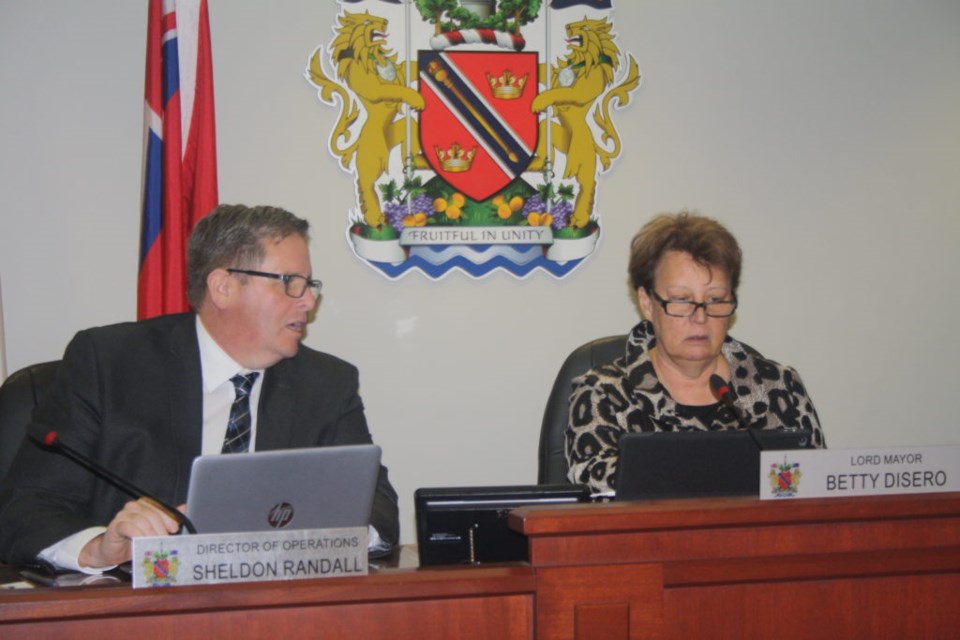
On Monday, Town council will discuss, and is expected to approve, its 2020 budget.
Included in that budget is $1.1 million for legal fees, just one line on a budget that includes capital projects of almost $10.4 million and a $37 million operating budget.
The bulk of the legal fees, $650,000, would come from parking reserves — if needed.
The capital budget was approved at a special council meeting Dec. 16, but the operating budget was deferred until Monday to allow council and staff to look for savings to lower the 9.48 per cent increase.
While comments from the public indicate a wide-spread belief the $1.1 million in legal fees is due to the Randwood Estate proposed hotel development, and other planning appeals, less than half is for matters related to planning issues, says Lord Mayor Betty Disero.
Of the planning issues, the estimate of legal costs for the coming year including LPAT (Local Planning Appeal Tribunal) appeals, could be settled without going to the tribunal, she says.
“The bulk of the $1.1 million is for non-planning issues. I can’t say more than that,” said Disero.
“It’s not only a matter of protecting heritage or fighting development. Some of it is, for sure, and we’ll make those numbers public at the appropriate time.”
Town staff arrived at an estimate of $1.1 million after discussions with the Town’s lawyers, an amount which includes the cost of consultation, staff time, and penalties, says Disero.
“The majority of it is potential penalties having nothing to do with planning. Our finance department works with our insurance companies and legal advisors to estimate what they see could be forthcoming within the year.”
Heritage designation for Randwood, the case that was heard last week but could be appealed again, is one of the issues the public is aware of, as is designation for a property on Prideaux Street.
Also to be heard at some point, possibly this year, is the appeal of a non-decision on the Randwood hotel site plan.
Of the legal actions involving Randwood, some were initiated by the developer, forcing the Town to respond. Those launched by the Town include an injunction to stop tree-cutting; charges laid for alleged violations of the Ontario Heritage Act over the destruction of heritage landscape features on the property, and dealing with water damage to the property from flooding.
Two of the legal battles the town will face this year are over the extension of interim control bylaws — one to temporarily stop development in the Old Town, and the other to put a hold on new cannabis operations until the Town works out how to effectively control them.
The interim control on development has been kept in place due to an appeal to an amendment of the Official Plan, Disero says, that looks at compatible development in residential neighbourhoods.
Without the appeal, which is over a fear of development restrictions, it could have been lifted in December, but the compatibility policy amendment can’t be used by the Town until the appeal is settled.
“Speaking for myself, if there were no appeals, I would have liked to have had it lifted,” she says.
The Town is dealing with a $500,000 legal action from Rainer Hummel of Hummel Properties. His application to quash the interim control bylaw alleges it’s “without jurisdiction and for an improper purpose,” is not predicated on a study or review of planning issues, is contrary to the planning act, and is against the principles of fairness, transparency and accountability.
Tweed Farms, with a large medical marijuana operation in NOTL, and Nick Dell, representing a small group of owners who want to grow cannabis on a property on Airport Road, have joined forces to have the interim control bylaw on cannabis quashed.
All of that, says Disero, still adds up to less than half of what has been budgeted for legal fees.
In general, she says, developers have become accustomed to doing what they want, and they don’t like being prevented from doing that.
“There are always challenges. It happens. It would be easier for council to say okay, we’re sorry, we’ll keep doing business the way we have. But what would that do to the town in another five to 10 years?”
Residents elected a council with a mandate to protect heritage, she says, “and that’s what we’re doing.”
When you set a new direction, she adds, “there will be people who hate it and people who like it,” but at least “they’ll know where we’re going with the town.”
Council does not take the expenses lightly, she says — they’re making decisions in trust for the public, and for the betterment of the town, “to maintain and preserve our heritage.”